Ovarian Cancer Specialist in Delhi – Ovarian cancer treatment in Delhi – Patient resources
Ovarian cancer treatment in Delhi Gurgaon Noida Ghaziabad | Dr Vineet Govinda Gupta is a gold medalist (AIIMS) medical oncologist practicing in Delhi NCR, formerly at AIIMS New Delhi for more than 12 years. भारत दिल्ली में ओवेरियन (अंडकोष) के कैंसर का पक्का इलाज. Access scientific ethical affordable and world-class ovarian cancer treatment in Delhi, Noida, Gurgaon, Faridabad. More information here
Three Newest treatments of Ovarian cancer (2019) – Hindi Video
What is Ovarian Cancer and what are the types of ovarian cancer?
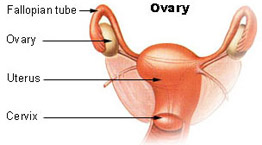
Ovaries are small organs in the female pelvis
“Ovaries” are two small organs present in all females which are the source of egg cells. These organs are located in the pelvic area. Ovarian cancer refers to cancer which arises from these organs. Cancer is a condition where the normal cells of the body become abnormal and start growing and multiplying uncontrollably and gain the ability to spread throughout the body.
There are many types of ovarian cancer, but the most important are:
- Epithelial ovarian cancer, which includes subtypes like serous, mucinous, endometrioid and clear cell ovarian cancer. This cancer usually happens to older women aged more than 50-60 years
- Germ cell ovarian cancer, which includes subtypes like dysgerminoma, yolk sac tumor, choriocarcinoma and embryonal carcinoma. This is usually a cancer of young women aged around 20-30 years
Many other kinds of ovarian cancers (sex cord/stromal, borderline tumors etc) also exist.
Is ovarian cancer a common cancer in women?
Yes! In fact, it is the fourth most common cancer in women in Delhi according to recent data.
What are the causes of ovarian cancer?
The cause of the vast majority of cases is unknown. However, there are some conditions that have shown increased risk of ovarian cancer. These include:
- Age – In general, the risk increases with increasing age
- A familial predisposition – if ovarian or breast cancer runs in your family
- Nulliparity – the risk is higher in women who choose not to have any babies
- Lack of breast-feeding of children
- Some diseases of the pelvis – endometriosis and polycystic ovarian syndrome (PCOS)
Can ovarian cancer be prevented?
If you are at very high risk of ovarian cancer (For example, women with a genetic mutation), it has been advocated by some that ovarian cancer can be detected early at a curable stage by using a combination of blood tests and ultrasound. However, it is not known if this helps save lives and is not considered routine.
In some women who are at very high risk of ovarian cancer, surgery (removal of both ovaries with part of uterus) can be done to greatly reduce the risk of cancer, both of the ovaries and the breast.
A qualified oncologist with expertise in ovarian cancer can help you decide whether any procedure is right for you.
Read more about prophylactic surgery to prevent ovarian cancer
My family member had ovarian cancer, am I also at risk?
While most ovarian cancers are not related to the family, it is estimated that a minority (around 10%) of ovarian cancer is inherited from the parents. Thus, it is recommended that the risk of familial cancer be discussed with all patients who develop epithelial ovarian cancer.
You can undergo testing to determine if you hare at risk of cancer due to your family history. A qualified medical oncologist/ovarian cancer specialist can help you decide these complex issues.

Ovarian and Breast cancers may be inherited
Should you undergo testing for familial cancer? Send us a free e-consultation
One of our family members has ovarian cancer, can it spread to me?
Ovarian cancer is not contagious and does not spread from person to person.
What are some common symptoms of ovarian cancer?
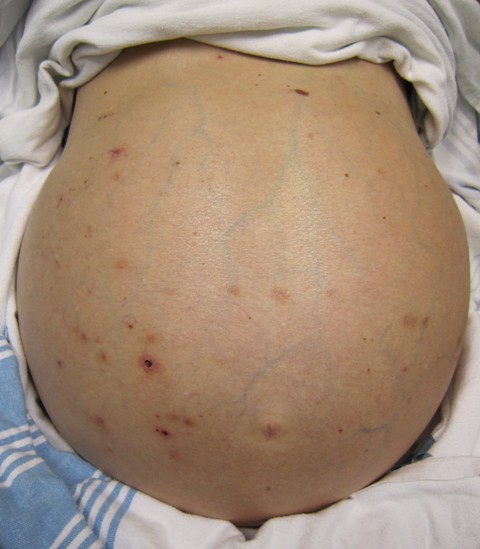
Fluid in abdomen (Ascites) is common in ovarian cancer (License: Creative Commons)
The most common symptoms of ovarian cancer include pain in the abdomen or pelvis, feeling a lump or swelling in the abdomen. Fluid in the abdomen (ascites) develops in about half of all patients. Some patients with advanced stage disease may suffer from pain in the chest or breathlessness due to spread of the cancer.
My doctor is suspecting ovarian cancer, what tests will I have to undergo?
The most common tests ordered for suspected ovarian cancer include:
- Blood tests
- Ultrasound of the abdomen and pelvis, which can be done over the abdomen or via the vagina (Transvaginal sonography/TVS)
- Chest X ray or CT scan
- CT scanning (for most patients) and sometimes, PET scanning. PET scan is not routinely helpful for all cases
- Additional tests (endoscopy, mammography, BRCA testing etc) may be needed for selected patients
What is CA-125? Does a high CA-125 always mean cancer?
CA-125 is a substance present in the blood of all humans in low amounts. CA-125 is a marker of ovarian cancer, and an elevated CA-125 in an ovarian cancer patient often points to disease. The usual normal value of CA-125 is 0-35 Units/ml. However…
CA-125 can be elevated without cancer! Dozens of causes of high CA-125 exist, such as:
- Infection in the abdomen, pelvis or chest
- Pregnancy
- Fibroid disease in uterus
- Liver, heart or kidney disease
- Fluid in abdomen or chest
CA-125 can be normal despite having cancer! For example, only 50% of patients with stage 1-2 ovarian cancer have elevated CA-125.
Thus CA-125 is not a perfect test. Your oncologist can help you interpret your reports.
Send me a free E-consultation for help in interpreting your CA-125 report
Should I get a biopsy for my ovarian cancer?
Not always! Biopsy of ovarian cancer can lead to spread of cancer in some cases. Thus, in many cases, biopsy of ovarian cancer is inappropriate and it is better to go directly for surgery. This is especially true for early stage cancer (Stage 1-2).
However, in many cases, a biopsy is needed, especially if the diagnosis is in doubt or if patient has advanced stage disease (stage 3-4) which is not suitable for upfront surgery.
Is stage 3 or stage 4 ovarian cancer curable?
Yes! Ovarian cancer is potentially curable at all stages. Even stage 4 ovarian cancer is potentially curable. Thus, upfront treatment of ovarian cancer should always be done with permanent cure as the objective.
What is the best treatment for Ovarian cancer in Delhi and the world?
In general, ovarian cancer is treated with a combination of:
- Surgery – to remove the cancer from the body
- Systemic therapy – including chemotherapy and targeted therapy to kill cancer cells
The same treatment is offered in Delhi and in the best international centers worldwide. An expert internationally certified medical oncologist can help you decide on the appropriate treatment in each case. More information here
I have ovarian cancer but I want to have children in the future…
In many cases, it is possible to treat ovarian cancer while preserving the capacity to have children in future. This is called fertility-sparing surgery.
Is chemotherapy compulsory for ovarian cancer treatment? Are there other options?
Chemotherapy is not compulsory for the treatment of ovarian cancer. However, the majority of patients will receive at least some chemotherapy. This is because chemotherapy is extremely effective in ovarian cancer and can produce permanent cure in many patients.
Is ovarian cancer chemotherapy difficult to take?
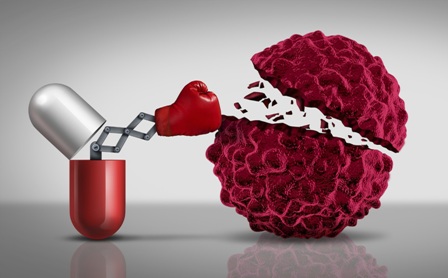
Chemotherapy are drugs that fight and kill cancer cells
Ovarian cancer chemotherapy is generally very well-tolerated by patients and serious side effects are uncommon. However, it has to be given by an expert medical oncologist. Even elderly patients can usually safely receive chemotherapy without serious side effects. A large number of options are available for chemotherapy and some patients can even receive therapy with tablets instead of injections.
Learn more about chemotherapy in ovarian cancer
What is the cost of ovarian cancer chemotherapy in Delhi?
Several different drugs are available for ovarian cancer chemotherapy. The cost of chemotherapy is guided mostly by the cost of chemotherapy drugs. Many older drugs are very cheap and allow very affordable ovarian cancer chemotherapy in Delhi NCR. On the other hand, some newer drugs may be more expensive. It is important to remember that more expensive does not always mean better. In many cases, cheaper, older drugs may be as effective as expensive newer drugs. In this case, an expert opinion can help in designing the most cost-effective and most beneficial chemotherapy regimen.
My ovarian cancer has relapsed (came back). What treatment options do I have?
Relapsed ovarian cancer can be treated and several very effective therapies are available which can control the disease. The patient can receive more chemotherapy and/or targeted therapy which can control the disease, often for many years. Some patients can also be offered surgery at relapse.
What is “platinum sensitive ovarian cancer” and “platinum resistant ovarian cancer”?
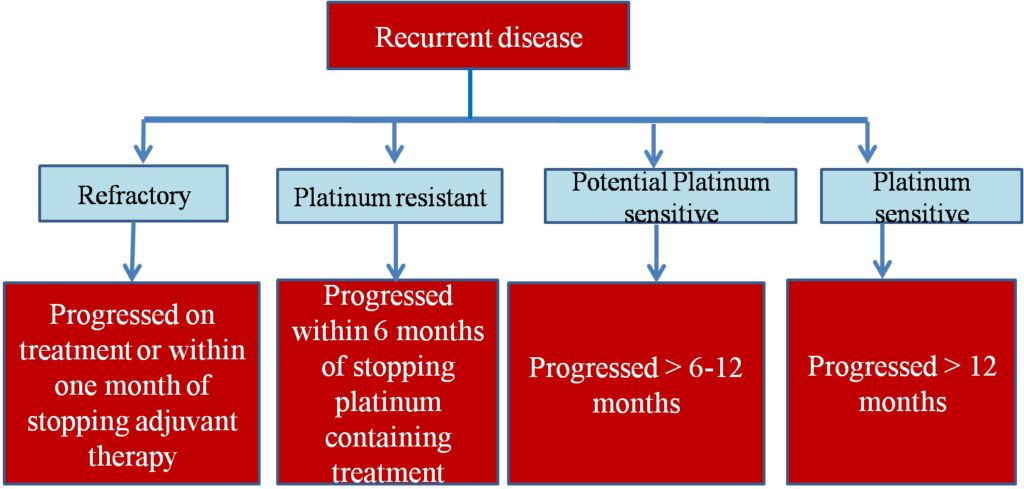
Types of relapsed epithelial ovarian cancer
These are terms which are applied to relapsed disease. Platinum sensitive ovarian cancer is cancer which relapses more than six months from the last platinum-based chemotherapy. These patients have many more treatment options and can usually control their disease much longer than patients with platinum resistant ovarian cancer. However, several treatment options exist even for platinum-resistant ovarian cancer.
What is Bevacizumab? Is it compulsory for all patients?
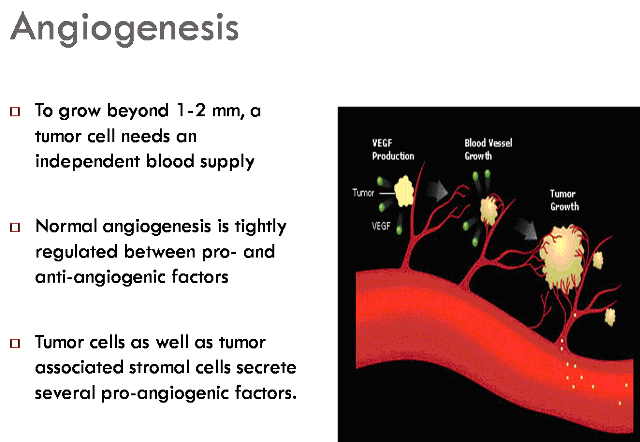
Angiogenesis is the process by which cancer cells develop a blood supply
In order to grow in size, tumors need to develop a blood supply. This process is called angiogenesis. Bevacizumab is a drug (targeted therapy) which prevents tumors from developing their blood supply and causes their death by starvation in the absence of blood.
Bevacizumab is a commonly used drug in ovarian cancer. However, it is not compulsory for all patients. Treatment with bevacizumab controls the cancer for longer but it is associated with higher side-effects and cost. Treatment with bevacizumab should be individualized to ensure the best possible outcome with least possible cost and side-effects.
Is bevacizumab right for you? Send us a free e-consultation
Learn more about targeted therapy
Learn more about how bevacizumab works
What is olaparib (Lynparza)? Where is it used? Is it available in Delhi, India?
Olaparib (Lynparza) is a “PARP inhibitor”. It is a new class of drugs which is specially used in ovarian cancer. These are drugs that work by disrupting the DNA-repair pathways within cancer cells. Since cancer cells already have substantial DNA abnormalities and often have pre-existing defects in DNA repair systems, these drugs lead to a state of “double damage” and cause death of cancer cells. Normal cells that have normally-working DNA repair systems are spared. The key advantage of these drugs is that they are often less toxic than chemotherapy and can be taken orally in most cases.
Olaparib is consumed as an oral tablet and may be much more effective than chemotherapy in selected patients.
Learn more about ovarian cancer treatment with olaparib
What is immunotherapy? How is immunotherapy used for ovarian cancer treatment?

Immunotherapy has revolutionized the treatment of cancer
Traditionally, ovarian cancer is treated with a combination of surgery and chemotherapy. However, in recent times, it has been realized that the body’s own immune system has the ability to fight and kill cancer cells. Immunotherapy refers to technologies that “boost” the body’s own immune system and allows it to fight and kill cancer cells.
Immunotherapy is active in ovarian cancer and immunotherapy for ovarian cancer in Delhi India is readily available. However, it is still considered an experimental option at the current time. Generally immunotherapy is used for patients with platinum resistant ovarian cancer who have exhausted treatment options or unwilling for chemotherapy. The exact benefit of immunotherapy is an area of active research.
Learn more about anticancer immunotherapy and how it works
Call/Whatsapp: +919013812875
What is the prognosis of ovarian cancer?
The exact prognosis of ovarian cancer depends upon several factors, including the subtype of cancer, stage, grade, quality of surgery and chemotherapy. A large proportion of patients can be permanently cured with proper treatment. The disease can be controlled for a long time even in incurable cases. An ovarian cancer expert can help achieve the best outcomes in every patient.
Why is it important to consult an ovarian cancer specialist in Delhi NCR?
Delhi is one of the best cities in India for the treatment of ovarian cancer, with great availability of surgical specialists and infrastructure for the treatment of this complex disease. The treatment for ovarian cancer requires significant expertise and a strong team. Some patients may require treatment for multiple years with many drugs. Improper frontline treatment can lead to disease relapse which is difficult to cure. Recently, there has also been a massive influx of new drugs, genetic tests and personalized therapy. An expert is needed to navigate this complexity.
Dr Vineet Govinda Gupta is a medical oncologist based in Delhi NCR with expertise in the treatment of ovarian cancer. He is gold medalist from AIIMS New Delhi where he has previously worked for more than 12 years. He has received numerous awards and published research in cutting-edge journals. More information here
View my detailed curriculum vitae
I want to learn more about treatment options in ovarian cancer!
You can access more information using various sections of this website. Some common topics of interest are linked below. For other topics you can use the menu above or the search box. If you cannot find your topic of interest, you can send me a free E-consultation using the form below.
- Information about cancer
- Information about chemotherapy
- Information about targeted therapy
- Other important abdominal cancers: Stomach, colon, rectal, kidney, liver and gall bladder cancer
Free E-consultation with an ovarian cancer specialist in Delhi
If you have additional questions not answered by the above section, use the form below to send me your queries and we will get back to you shortly. You can also Email me at vineetgovindagupta@gmail.com. or call/whatsapp on +919013812875
